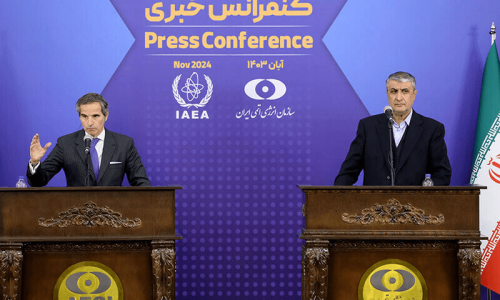
THIS is with reference to the letter ‘EOBI’s contempt towards retirees’ (Feb 8) against which there is a need to put the record straight. The Employees’ Old-Age Benefits Institution (EOBI) does not pertain to the subject of labour. Instead, the EOB Act of 1976 was enforced to achieve the objective of Article 38(C) of the Constitution for compulsory social insurance to private-sector employees in the shape of long-term benefits of old-age pension, survivors’ pension, invalidity pension and lump sum old-age grant.
That is why EOBI functioned under the State Life Insurance Corporation after its inception in 1976 till 1980, and then the Ministry of Labour and Manpower. After the 18th amendment and due to abolishment of the said ministry from the federal concurrent list, the federal government created a new entity; the Ministry of Overseas Pakistanis and Human Resource Development.
The assigned business of the new ministry is supervision and control of EOBI and other federal welfare organisations for private-sector employees, including the Workers Welfare Fund (WWF), the Bureau of Emigration and Overseas Employment, and the Overseas Employment Corporation.
The Council of Common Interest (CCI), headed by the prime minister and comprising three federal ministers and chief ministers of the four provinces, was established under Article 154 of the Constitution. It also decided the fate of EOBI in its meeting in December 2019, establishing that “EOBI shall remain with federal government … till such time a mutually agreed mechanism is developed”.
This makes it clear that EOBI remains a federal body as before, although some irresponsible employers use the pretext to avoid paying EOBI contribution for their employees under the guise of the 18th amendment.
As far as the contribution issue is concerned, the Sindh High Court (SHC) clearly declared late last year in a contribution case that priority must be given to the employees as the old-age benefits law is a beneficial law, aimed at benefitting the employees.
It has also been reported that the EOBI management has also submitted a draft law for necessary reforms and amendments to the EOB Act, 1976, before parliament, but the necessary legislation on this is probably not a matter of priority for the members of parliament.
At present, EOBI has been facing several challenges regarding its own survival, including stoppage of matching grants by the federal government since 1995, severe imbalance in contribution collection and pension disbursement amounts, due increase in pension rate, severe manpower shortage due to massive retirement of employees and ban on new recruitments. This also includes payment of contributions by employers’ community at previous rates under the pretext of the 18th amendment, and massive litigation in courts against EOBI in the matter of contributions by the employers.
As a result, the elderly retired employees who have toiled hard throughout their lives for the development of the country are having to bear the brunt of the situation.
However, EOBI is the only national pension organisation in the country whose lifetime pension is benefiting millions of employees belonging to all employment sectors, from the peons to the managers. The government needs to take immediate action on this important matter that is hurting the cause of millions of retired employees who deserve a better deal.
Israr Ayoubi
Ex-PRO, EOBI
Karachi
Published in Dawn, April 16th, 2023











































Dear visitor, the comments section is undergoing an overhaul and will return soon.